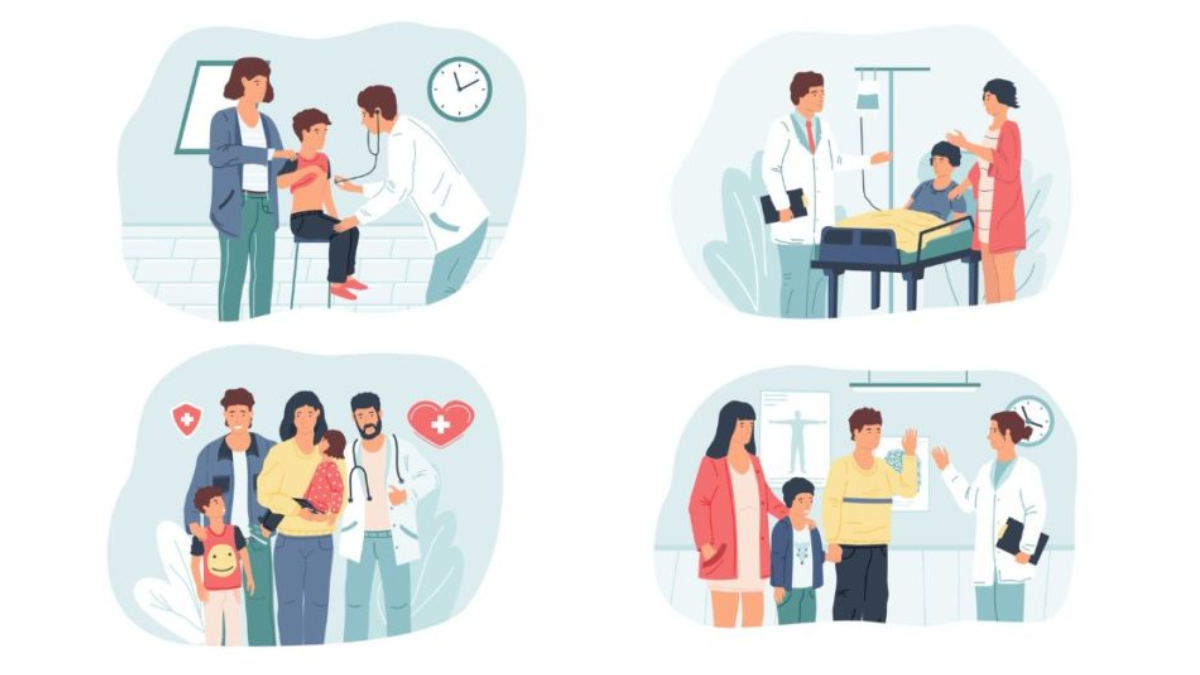Regular hospital visits are essential for maintaining good health and preventing serious medical conditions. Hospitals are not only for emergencies or illnesses—they play a crucial role in proactive healthcare. By visiting hospitals for check-ups, screenings, and consultations, individuals can detect health issues early, manage chronic conditions, and improve overall well-being.
Importance of Regular Hospital Visits
Regular visits to hospitals offer multiple benefits:
- Early Detection of Diseases: Prevents complications by identifying illnesses in their initial stages
- Preventive Care: Vaccinations, screenings, and health advice reduce the risk of serious health issues
- Management of Chronic Conditions: Continuous monitoring of diabetes, hypertension, heart diseases, and more
- Improved Lifestyle Choices: Guidance on diet, exercise, and wellness
- Peace of Mind: Reassures individuals about their health status
Regular hospital visits are an investment in long-term health, reducing medical emergencies and improving quality of life.
Key Benefits of Hospital Visits
1. Early Disease Detection
Hospitals provide screening tests and diagnostics to detect conditions early. Early detection increases treatment success rates and reduces healthcare costs. Common screenings include:
- Blood pressure and cholesterol checks
- Diabetes and glucose testing
- Cancer screenings (breast, cervical, prostate)
- Heart and kidney function tests
2. Preventive Healthcare
Hospitals focus on preventive measures to avoid serious illnesses:
- Vaccinations for children and adults
- Nutritional counseling and lifestyle advice
- Health education programs for communities
- Regular check-ups to monitor overall health
3. Chronic Disease Management
For individuals with chronic conditions, hospitals offer continuous care:
- Regular monitoring and follow-ups
- Medication management
- Lifestyle recommendations to prevent complications
- Support from specialists like cardiologists, endocrinologists, and nephrologists
4. Access to Specialists
Hospitals house multiple specialists who provide expert advice for specific health issues:
- Cardiologists for heart health
- Oncologists for cancer treatment
- Neurologists for brain and nerve disorders
- Pediatricians for child health
- Gynecologists for women’s health
Access to specialists ensures comprehensive care for all medical needs.
5. Advanced Diagnostics and Treatment
Regular hospital visits allow timely use of advanced diagnostic tools:
- Imaging services like X-rays, MRI, and CT scans
- Blood and tissue tests
- Early intervention for conditions before they become critical
- Personalized treatment plans based on test results
6. Mental Health Support
Hospitals provide mental health services as part of overall wellness:
- Counseling for stress, anxiety, and depression
- Psychiatric consultations for mental disorders
- Emotional support for patients and families
- Programs for mindfulness and mental well-being
7. Rehabilitation and Recovery
Hospitals support rehabilitation for patients recovering from illness, surgery, or injury:
- Physical therapy to regain mobility
- Occupational therapy for daily living activities
- Speech therapy for communication issues
- Guidance for long-term recovery at home
8. Education and Awareness
Hospitals educate patients and communities on health and wellness:
- Lifestyle modification programs
- Awareness about disease prevention
- Guidance for managing chronic conditions
- Informative workshops and seminars
How Regular Visits Improve Overall Health
- Reduced Hospitalization: Early detection prevents critical conditions and reduces long-term hospitalization.
- Better Quality of Life: Continuous monitoring and timely treatment improve physical and mental well-being.
- Cost-Effective: Preventive care and regular check-ups save money by avoiding major treatments.
- Enhanced Knowledge: Patients become aware of their health status and make informed decisions.
- Longer Life Expectancy: Regular care ensures healthier aging and reduced risk of serious illnesses.
Tips for Effective Hospital Visits
- Schedule regular check-ups at least once a year
- Keep a record of past medical history and medications
- Communicate openly with doctors and staff about symptoms
- Follow prescribed treatments and lifestyle recommendations
- Ask questions to clarify doubts and understand health conditions
FAQs About Regular Hospital Visits
1. Why should I visit a hospital regularly?
Regular visits help in early disease detection, preventive care, chronic disease management, and mental well-being.
2. How often should I visit a hospital?
For healthy adults, a check-up once a year is recommended; patients with chronic conditions may require more frequent visits.
3. What services can I access during routine visits?
Screenings, vaccinations, diagnostics, specialist consultations, mental health support, and health education programs.
4. Do regular visits reduce medical emergencies?
Yes, early detection and preventive care reduce the risk of severe health issues.
5. Are hospital visits expensive?
Preventive care visits are generally cost-effective and can save money by avoiding major treatments later.
6. Can children benefit from regular hospital visits?
Yes, children benefit from vaccinations, growth monitoring, and early detection of illnesses.
7. Are mental health services available during routine visits?
Many hospitals offer counseling, psychiatric consultations, and stress management programs.
8. How do hospitals help manage chronic diseases?
Through regular monitoring, medication management, lifestyle advice, and specialist care.
9. Can hospitals provide advice on diet and exercise?
Yes, hospitals often provide nutritional counseling, diet plans, and fitness recommendations.
10. What should I prepare before visiting a hospital?
Carry medical records, a list of medications, insurance details, and note down any symptoms or concerns.

